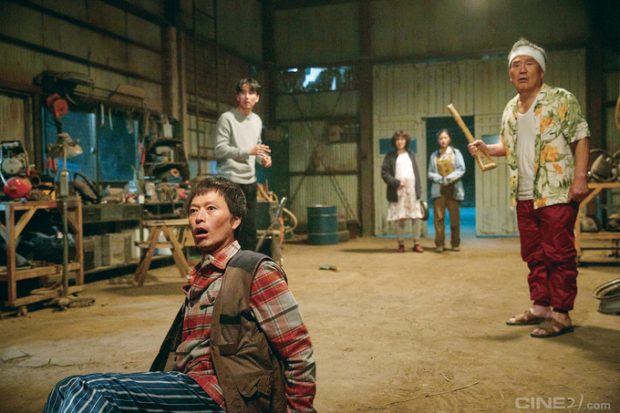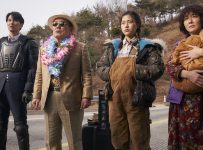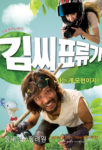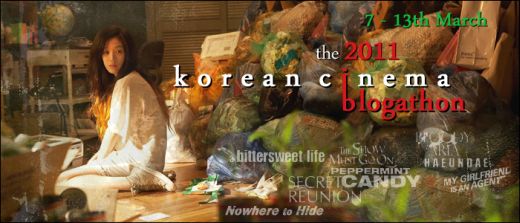The zombie film is having something of a renaissance, and Korea has already made its mark with films like Train to Busan and Seoul Station redefining and influencing audiences across the globe. THE ODD FAMILY: ZOMBIE ON SALE (기묘한 가족) takes a slightly different approach, emphasising comedy in this strangely endearing film that happens to feature a bit of bloodletting.
As the title would imply, this is a zombie film about a deeply odd family. We all know the story: a zombie enters the lives of a family living in a small community, and soon the plague spreads like wildfire. Of course, no zombie has encountered a family as opportunistic as this one. Man-Deok (Park In-Hwan) runs a rural gas station that relies on tourists. When a zombie bite gives the Park patriarch back some of his youthful vim and vigour, they concoct a scheme to monetise zombie bites.
Writer/director Lee Min-Jae’s debut is arguably one of the gentler zombie films in the canon. Spending much of the first half of the film simply getting to know the family and their various quirks. The often-unilateral relationship between the strange man (Jung Ga-Ram) and Hae-Gul (Lee Soo-Kyung) swings between meet-cute and broader comedy. As Hae-Gul tries to ween him off flesh using sauce-covered lettuce, there’s a wonderfully silly moment when the pet zombie spots a field of the leafy green vegetables.

The back half of the film gives way to a more traditional zom com, as chaos erupts and the zombie damn breaks. A zombie survival montage, and a possible visual reference to George A. Romero’s Land of the Dead, will be appreciated by the undead traditionalists in the audience. That said, you’re unlikely to see a zombie rave of this quality outside a theme night at a warehouse near you.
There’s an excellent cast assembled here too. Uhm-Ji Won (The Master) has a laconic vibe that throws shade like a hooded lamp. Rising star Jung Ga-Ram (The Poet and the Boy) has fun playing against type, as his deteriorating body displays a physicality to his comedic and dramatic presence.
Lee Min-jae concludes with a time jump that leaves us in a very different environment to the tranquillity at the start of the film, either conclusively bringing his saga to a close or leaving the door wide open for more adventures to come. It’s the kind of film that could easily go on in the vein of Zombieland, continuing to follow this small group of people across the wastelands of Korea if it so chose. Either way, this is a movie that does what it says it’s going to do on the side of the tin, but also manages to surprise and delight throughout.
2019 | South Korea | DIRECTOR: Lee Min-jae | WRITERS: Lee Min-jae | CAST: Park In-hwan, Jung Ga-ram, Lee Soo-kyung, Uhm Ji-won, Kim Nam-gil, Jung Jae-young | DISTRIBUTOR: Korean Film Festival in Australia 2019 (AUS) | RUNNING TIME: 112 minutes | RELEASE DATE: 1-18 August 2019 (KOFFIA)




